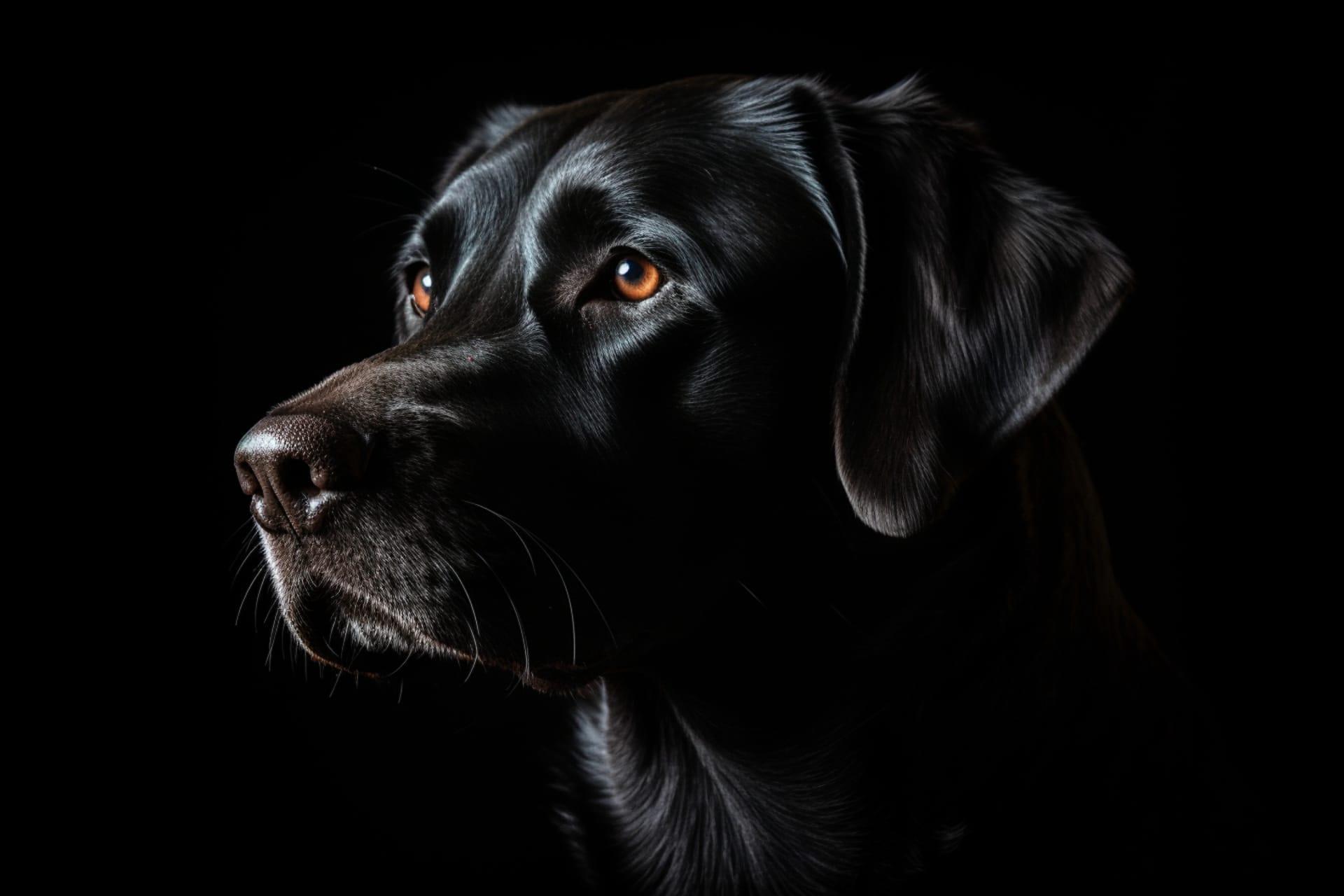Black Lab Characteristics
- Home /
- Mini Encyclopedia /
- Animal /
- Black Lab Characteristics
1
Black Labrador Retrievers, commonly known as Black Labs, are admired for their glossy black coats, sturdy build, and friendly disposition. Typically, male Black Labs stand about 22 to 24 inches tall at the shoulder and weigh between 65 to 80 pounds, while females are slightly smaller, standing 21 to 23 inches tall and weighing between 55 to 70 pounds. These dogs boast a strong, muscular physique, well-suited for their origins as hardworking retrievers. Their life expectancy ranges from 10 to 12 years, making them a committed companion for a significant portion of an owner's life.
One of the Black Lab's most remarkable organs is its nose, which is highly sensitive and capable of distinguishing a vast array of scents. This extraordinary olfactory ability is not just about smelling dinner from afar; it plays a crucial role in their success as working dogs. Black Labs are often employed in roles that require scent detection, such as search and rescue missions, bomb and drug detection, and even assisting in medical diagnosis by sniffing out diseases. The structure of a Lab's nose, with its moist, spongy lining, captures scent particles, which are then identified by an extensive network of olfactory receptors, showcasing their exceptional sense of smell.

2
Question: What is the most common health issue faced by Black Labrador Retrievers, and how can it be managed?
Answer: One of the most common health issues in Black Labs is hip dysplasia, a genetic condition where the thighbone doesn't fit snugly into the hip joint. Symptoms can range from discomfort to severe lameness. Management includes maintaining a healthy weight to reduce stress on the joints, regular exercise to strengthen the muscles around the joint, and anti-inflammatory medications to manage pain. In more severe cases, surgical options such as total hip replacement may be considered. Regular veterinary check-ups can help detect hip dysplasia early, allowing for prompt management of this condition.

3
Black Labs are known for their high energy levels and require ample exercise to maintain their physical and mental well-being. An ideal exercise regimen includes daily walks, runs, or play sessions, totaling at least one hour of vigorous activity. They excel in activities that tap into their retrieving instincts, such as fetch, swimming, and agility training. Without sufficient exercise, Black Labs can become restless and exhibit behavioral issues.
When it comes to feeding, Black Labs are known for their hearty appetites. They typically require two meals a day of high-quality dog food, with the amount depending on their size, age, and activity level. It's crucial to monitor their food intake and maintain a balanced diet to prevent obesity, a common problem in the breed. Treats should be given sparingly, and fresh water should always be available. Consulting a veterinarian for personalized feeding advice is recommended to ensure their dietary needs are met.

4
Black Labrador Retrievers are versatile and adaptable, thriving in a variety of living conditions, from spacious country homes to more compact city apartments. However, they do best in environments where they have enough space to move around and access to outdoor areas for exercise. Whether in rural or urban settings, Black Labs need regular outdoor activities to keep them fit and happy.
In terms of reproduction, Black Labs reach sexual maturity between 6 to 12 months of age, though breeding is not recommended until they are at least two years old, allowing time for health tests to screen for genetic conditions like hip dysplasia and hereditary eye diseases. A typical litter size ranges from 6 to 8 puppies. Responsible breeding practices, including health screenings and matching based on temperament and physical health, are essential to maintain the breed's health and quality of life.

5
Book: "The Labrador Retriever Handbook" offers a comprehensive guide to owning and caring for a Black Lab. Authored by British canine expert Dr. Betsy Brevitz, the book was published in the early 2000s and provides insights into the breed's history, temperament, and care requirements. It covers essential topics such as training, health care, and nutrition, making it an invaluable resource for both new and experienced Lab owners.
Book: "Labrador Retrievers for Dummies" is part of the popular "For Dummies" series and is aimed at providing straightforward, easy-to-understand advice on raising a Black Lab. Written by American author and renowned dog trainer Joel Walton, this book, published in the late 1990s, delves into selecting, training, and caring for Labs. It highlights the breed's intelligence and versatility, offering practical tips on everything from basic obedience training to advanced activities that cater to a Lab's energetic nature.